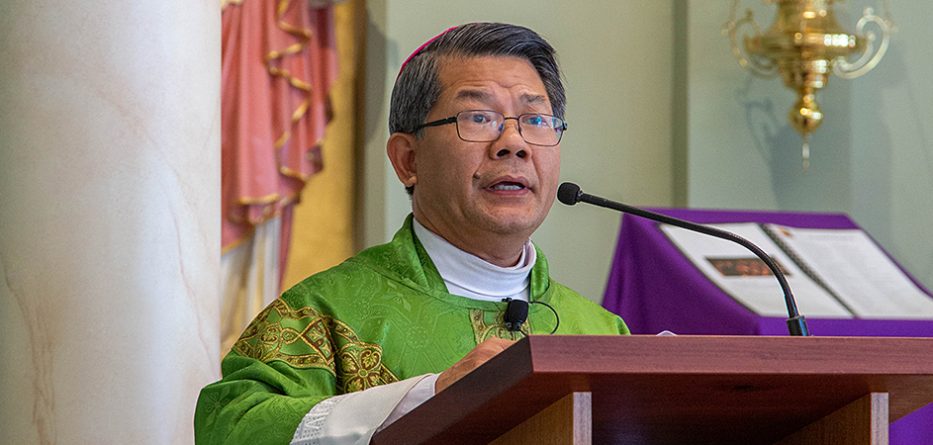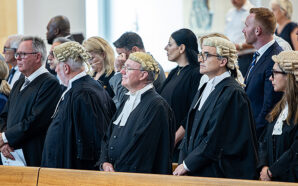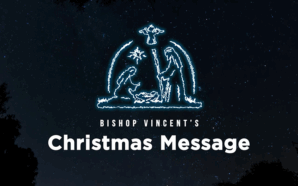Most Reverend Vincent Long Van Nguyen OFM Conv DD STL, Bishop of Parramatta
Homily for the 17th Sunday in Ordinary Time Year B 2021
Readings: 2 Kings 4:42-44; Eph 4:1-6; John 6:1-15
25 July 2021
Overcoming fear and acting with vulnerable trust
Dear friends,
It is one of the most challenging times for us as nation and particularly for us living in Western Sydney, the epicentre of this latest outbreak. COVID-19, with its aggressive variant, is running rampant and is turning our lucky country into a lockdown island. So many people are struggling in every sense: physically, emotionally, financially, and even spiritually. With churches and places of worship being off limits, it seems for some that even God is out of reach. We feel anxious and fearful.
Scriptures for this Sunday reassure us that God is present with us through times of crisis, calling us to overcome fear and to act with vulnerable trust. In Jesus, we see a bigger picture of God’s plan. We can model an alternative pathway out of social and environmental collapse into a new future of living in harmony, humility, solidarity and compassion.
In the first reading, we hear an inspiring story of courage in crisis. Elisha was at the drought-stricken land when he was given 20 barley loaves by an unknown farmer. The prophet in turn decided to regenerate this act of generosity. He did not keep the loaves to himself. Instead, he commanded his servant to give the precious food to the men who had suffered hunger because of the drought. Perhaps Elisha had learned from his master Elijah who earlier was given bread by the poor widow.
In both episodes, we see a common thread which is the courage to trust and to surrender. Like the widow, Elisha teaches us that we show the best of our nature by sharing what God has given to us, by living in solidarity instead of self-centredness. It is in giving priority to those in immediate need that we are replenished with God’s gifts.
The Gospel tells us a similar story. Jesus and his disciples are met with a predicament: a large hungry crowd and very little food. The disciples react with a sense of fear and fatalistic resignation. But Jesus refused to do nothing. He asked his disciples to confront the need, to act with courage and to do all they could in their power to help others. He told them to start doing the possible rather than fearing the impossible. It was by concrete practical actions of solidarity and sharing that they would be able to change a harsh reality into a celebration of hope.
It is instructive that Jesus transforms the five barley loaves and two fish belonging to a little child. This is consistent with the way the grace of God is often manifested: not through the privileged, affluent and secure but through the insignificant and vulnerable, like the poor widow in Elijah’s story or the unknown farmer in Elisha’s. It is also consistent with the teaching of Jesus on the need to be childlike, to be poor in spirit and to surrender in trust.
Brothers and sisters,
Today’s Gospel is framed in a Eucharistic context. There is reference to the Feast of the Passover and the language of thanksgiving. John’s predominantly Jewish Christian community had been expelled from the synagogues, the festivals and traditions associated with Judaism. They wondered if the God of their ancestors was still with them as they were cut adrift from their roots. The response becomes crystal clear. In Jesus, the God of the past comes to life. The God who fed the Israelites with manna is the same God who fed the crowd and feeds them now. The God of the Passover is the same God who revealed himself in the Christian meal of agape.
We may not be denied access to places of worship in the same way the early Christians were denied entry to the synagogues. We may not be able to be fed sacramentally even in our homes. But let us never forget that God is with us in every crisis, enabling us to overcome fear and to grow beyond our limited horizons. Our world is fractured and threatened with social and environmental collapse. It can only have a better future if we live in harmony, humility, solidarity and compassion. It needs Gospel people to lead the way.
St Paul in the second reading appeals for a life worthy of the Christian vocation consisting in the practice of love, gentleness, selflessness and patient suffering. Let us seize this opportunity to practice these virtues for the benefit of humanity and all creation. Then this great suffering will be turned into a great gift because it lays the foundation for the new future. May the God of exodus and liberation revealed in Jesus guide us to be a people of compassion and communion, thus showing the alternative pathway out of the crisis.







